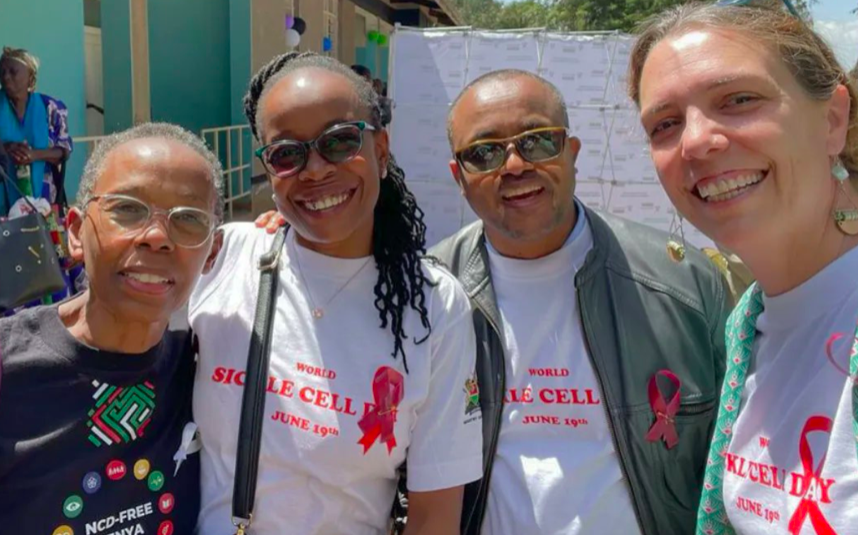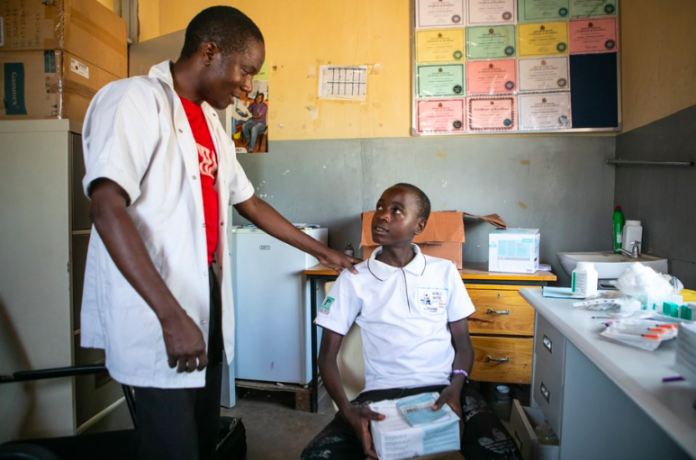Nairobi, Kenya: In a significant leap towards revolutionizing healthcare, Kenya has embarked on the implementation of the Package of Essential NCD Interventions – Plus (PEN Plus), a transformative strategy recommended by the World Health Organization (WHO). Designed to address severe non-communicable diseases (NCDs), this initiative takes a targeted approach, focusing on impoverished and vulnerable families.
Currently in Kenya, the Ministry of Health (MoH) and its partners are meticulously crafting a comprehensive National Operational Plan, setting the stage for the program’s rollout across 35 counties by 2030.
The primary focus of PEN Plus is on severe NCDs, including rheumatic heart disease, congenital heart diseases, Type 1 diabetes, sickle cell disease, and heart failure. These diseases pose a significant health challenge, particularly among marginalized communities, making the initiative a crucial step towards addressing health disparities.
Dr. Issak Bashir, Director of the Directorate of Family Health at the MoH, recently voiced the unwavering commitment of the Ministry during a dedicated workshop aimed at shaping the PEN Plus National Operational Plan.
“Our dedication extends to providing the highest quality healthcare to every Kenyan, particularly addressing the needs of children and young adults grappling with severe NCDs,” emphasized Dr. Bashir. He underscored the commitment to the complete implementation and expansive scaling up of PEN PLUS across all regions.
At the heart of PEN Plus lies the training of mid-level providers, including nurses and clinical officers, equipping them with the necessary skills to deliver integrated chronic care services for severe NCDs.
This comprehensive approach spans diagnosis, symptom management, psychosocial support, palliative care, and referral for surgical and specialty care when required. Dr. Bashir emphasized that this commitment aligns with the broader goals of universal health coverage, emphasizing the strengthening of human resources, health financing, health products and technology, and strategic use of digital technologies.
The urgent need for such initiatives is underscored by the rise in Disability-Adjusted-Life-Years (DALYs) due to NCDs in sub-Saharan Africa, reaching 67% between 1990 and 2017. In Kenya, 37% of total DALYs lost are attributed to NCDs, with cardiovascular diseases emerging as the leading cause of NCD mortality.
In Kenya, NCDs are responsible for more than 50% of in-patient hospital admissions and 39% of all deaths annually. Statista.com reported that 119,958 Kenyans died from NCDs in 2019. Cardiovascular diseases (CVDs) account for the majority of NCD-related deaths in the country.
In Kenya, Research Triangle International’s write-up entitled Curbing the Burden of Non-Communicable Diseases in Kenya rti.orgnotes that the predominant risk factors for non-communicable diseases (NCDs) include tobacco use, physical inactivity, unhealthy dietary habits, and the detrimental impact of globalization on the marketing and trade of harmful alcohol. The diagnosis of an NCD often translates to prolonged periods of poor health and disability, contributing to NCDs being a factor in 30.2%of all disability-adjusted life years in the country.

Moreover, NCDs constituted 31% of total deaths in Kenya in 2015, with a significant portion (51%) classified as premature deaths, affecting individuals under the age of 70. Alarming statistics reveal that over half of in-patient admissions and 40% of hospital deaths in Kenya can be attributed to NCDs, placing substantial strain on healthcare budgets. The PEN Plus initiative, therefore, assumes a critical role in addressing this burgeoning health challenge.
A recent study conducted on 236 health workers further emphasizes the importance of proactive health measures. Published in March 2023, the study revealed unanimous agreement among both clinical and non-clinical staff on the significance of health promotion and prevention of NCDs. A remarkable 73% of non-clinical workers expressed the need for strengthened outreach initiatives and health education programs for NCD patients.
Digital health emerges as a pivotal component in this transformative healthcare journey. Over 94% of participants in the study viewed digital health interventions as optimal for medical information sharing in multidisciplinary care settings. The majority agreed that eHealth/mobile health (mHealth) could be seamlessly integrated into the healthcare infrastructure to enhance care for vulnerable patients.
As Kenya proceeds with the implementation of the PEN Plus strategy, it can seize the timely opportunity to revolutionize patient care and significantly impact the health and well-being of the population. This initiative signifies a crucial step towards building a more inclusive, accessible, and effective healthcare system that addresses the diverse needs of all Kenyans.














